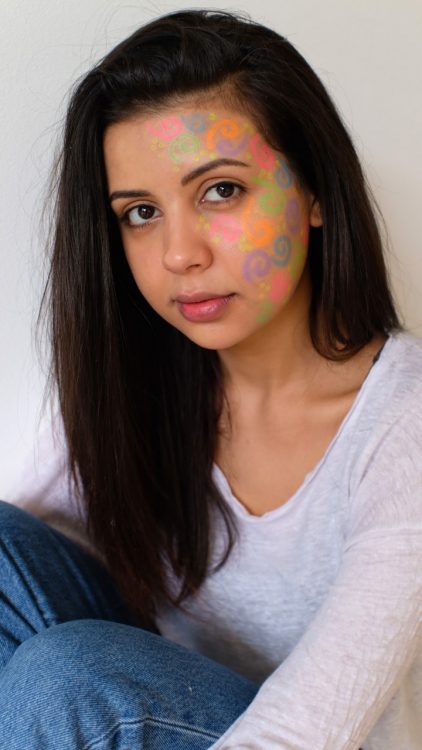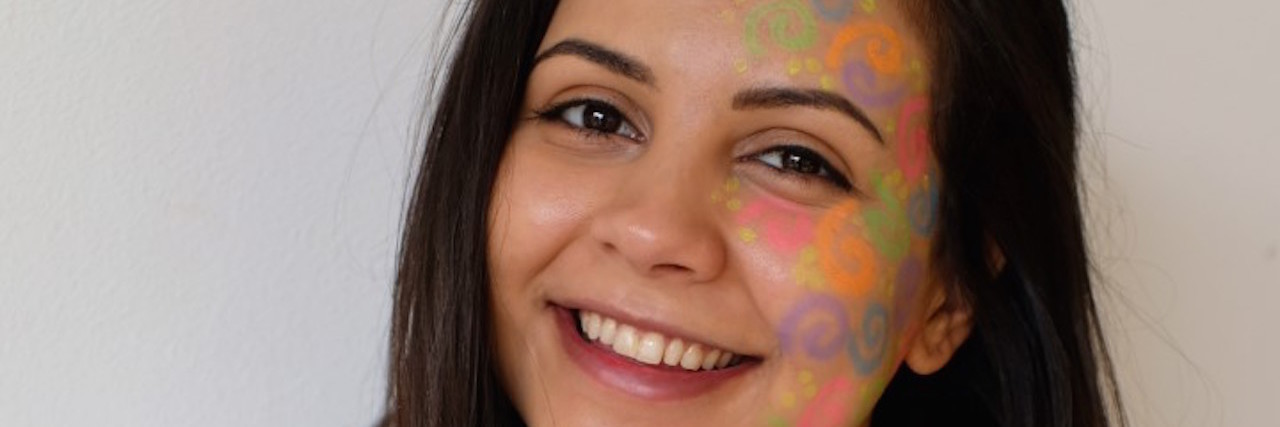Statistics show there are around 30 million Europeans living with a rare disease. Most of them are caused by a genetic deficiency, while some are caused by environmental factors. Now, let that properly sink in for a second. That is only within Europe. Worldwide, there are so many of us, chances are you know someone living with or affected by a rare disease.
Many diseases are so rare, research is merely used as a vague guideline throughout the treatment of it. Sometimes, patients might even need to teach their medical supervisors about their conditions.
Those with rare conditions can easily lose hope — hope for research funding, hope for quality of life, and most of all, hope for a cure. There are millions of people like this, and they each have one thing in common: their situation is incredibly rare.
I happen to be one of those people.
My condition is called Behcet’s disease. Some might know it as Behcet’s syndrome or Silk Road disease, but for most people it’s a “never heard of that” condition. In the Netherlands, where I live, chances are one in a 100,000 you have it. The prevalence varies in some parts of the world, but pretty much everywhere, it’s considered rare.
Simply put, it’s a cardiovascular condition. Some might experience it as a bunch of autoimmune conditions all in one, but every case presents itself in a different way. For me, it has been severely debilitating up until now. The condition is chronic, and in a number of cases, it can be fatal.
Despite the fact there’s so many of us, having a rare illness often feels lonely. Since my situation is so unique, it took several doctors throughout the country many years to diagnose me. Although the disease had been mentioned in my early stages of sickness, because of limited information available, it was ruled out as an actual option. That was until the sight of it was so off-putting, doctors had no choice but to research until they found positive test results for Behcet’s disease.
Initially, I felt incredible relief. I thought my diagnosis would be the end of a long, exhausting journey. Many of us who have rare diseases will immediately recognize that a diagnosis is just the beginning of it all. You see, when a disease is rare, treatment is not a sure thing.
When you have a condition like this, you’ll find most medical professionals are eager to help. That’s assuming they might have access to the solution. Once it becomes clear the solution is just not there, things could get uncomfortable. Doctors back out, even if that is unwillingly. The idea of “messing” with an illness so rare is scary and many will look at it as a mountain that can’t be moved. Their focus shifts to fighting existing symptoms, rather than focusing on what’s causing the symptoms in the first place.
So, where does that leave us as patients?
Most of us learn to struggle in silence, waiting for help or just little relief.
We get quiet, and sometimes are overlooked.
There’s a certain chain of command in the world of disease, and if you’re the lucky recipient of a rare diagnosis, your group is most likely last in line.
Could it be that curing your disease is less important than any other?
Is it because people just don’t care?
I sure hope not. I’m afraid they just don’t know about you. It’s hard to care for something you’re not aware of in the first place.
The reasons behind that aren’t exactly rocket science.
If there’s not a large number of people affected, oftentimes, there is not much awareness.
If there is little awareness, there’s probably a lack of money for thorough research.
When there’s a lack of thorough research, there is limited information.
Finally, when there is limited information, patients and doctors are confined to a life long guessing game, sadly surprised by each new symptom.
Patients can become insecure and suspicious of the body they’re living in, waiting for the next symptom to present itself. We become prisoners, held hostage by our own bodies. And if this wasn’t enough, all of this can evoke a continuous cycle of stress, which is considered one of major contributing factors in chronic rare diseases.
Here we are. We feel stressed, ill, and afraid.
When you’re seemingly left alone, you’re left with a lot of time on your hands. Time to think things over.
If you ask me, when you really think about it, there is so much beauty in the word “rare.”
Rare makes you stand out.
Rare has the power to isolate, but also the ability to inspire and connect.
Lately, I’ve found I’ve lost my, once loud, voice. I’ve felt that I was left alone with this punishment of a disease and I let it take my will to be heard. I have spared my energy for worse days ahead, while fighting all this by myself. I stayed put in a quiet corner, waiting for a miracle, wishing for a cure. Caged in between the four walls that became my daily reality, I hoped someone would care enough to make it happen.
Finding a solution to a problem always starts with acknowledgement. We expect the world to acknowledge our fight, yet we continue to fight in silence. We wish for a reaching hand, when sometimes we hesitate to reach out ourselves. We keep fighting like lonesome warriors, when we could also have been storytellers together. Here’s the thing: I believe if we keep hiding, we won’t be anywhere to be found.
Making people aware of the importance of treating, or even preventing your illness, starts with you and you only. I’m talking to the people living it every day. Only those going through it can make their stories heard. Only you can inspire others to take action by making sure your story is out there. Tell us who you are. Believe your research has a cause, and your cure is as worthy as any other. Do this even on the days you feel weak, and feel like there’s no point in fighting.
Heck, do this especially then.
Just you, you’re inspiring. It’s that simple.
What if we decide not to be caged in between these four walls, but to seek freedom in the space handed to us? What if we share our journeys despite the vulnerability that comes along with being rare, and rise above it?
We are here. We are not only rare, but we’re unique. We need help, but we’re strong — strong enough to walk through unknown territory together.
If we show our faces and invite the world into our realities, we free ourselves from waiting for a miracle to happen. We’re fueling our strength to fight. We’re raising awareness ourselves; we’re making it happen ourselves.
And in doing so, we also distance ourselves from isolation, possible embarrassment and take ownership of our conditions. We actively take part in the solution, and are therefore a crucial part in fighting the disease. We take part in something bigger than ourselves.
In honor of Rare Disease Day in 2018, I choose to be a part of the solution.
I’ll speak up for myself and my cause. I’ll wish for my freedom.
However, I’ve realized the power of uniting is even more powerful than just sharing my own story. The importance of our cause lies in all of our stories combined.
Therefore, I ask all of you to make yourself heard and seen from the cage which you’ve felt confined, and plan your own great escape. Maybe if we all do, we’ll find together we’re not so rare at all. And with all of our forces combined, we’ll start breaking the shackles rare disease has forced upon many of us.
I wish for freedom for us all.
If you want to #ShowYourRare, join the campaign and visit rarediseaseday.org to get involved.

This post originally appeared here on RareDiseaseDay.org
We want to hear your story. Become a Mighty contributor here.
Photo by Pauline Ten Doeschot

